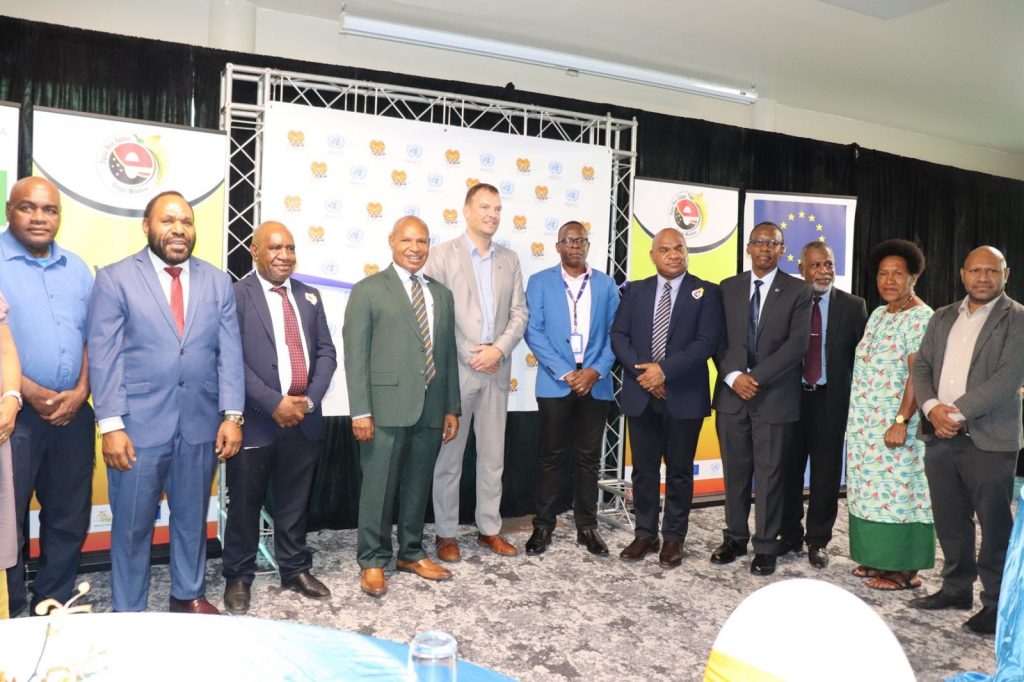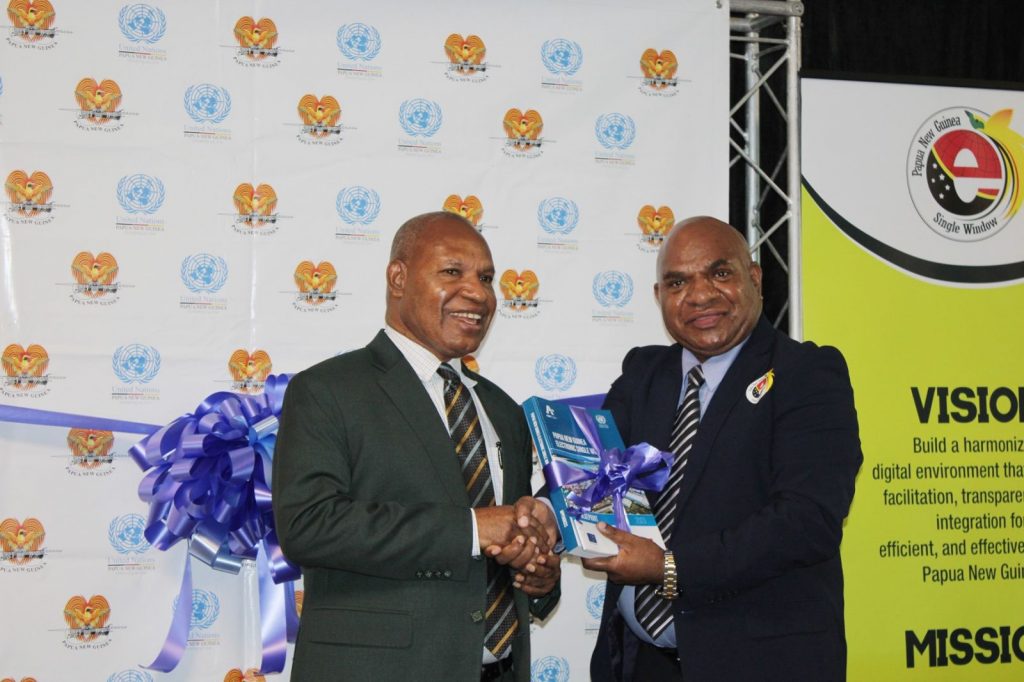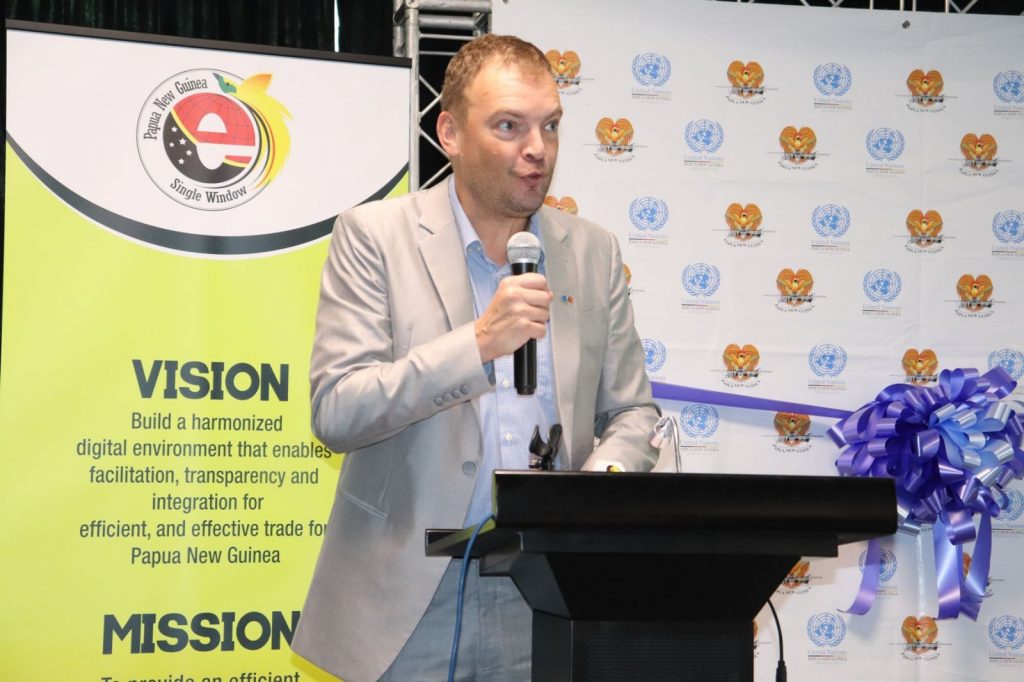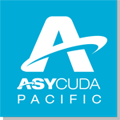Papua New Guinea’s (PNG) Minister for International Trade and Investment, Mr. Richard Maru has set sights on implementing the National electronic Single Window System(eSW) within the next three years.
The PNG Government marked a significant milestone in its journey toward digital trade facilitation with the official receipt of the Blueprint for the National Electronic Single Window (eSW) on Friday, 3 May, 2024.
Mr. Maru said, “Implementing the Single Window System is the number one priority of the PNG Government.” He made a resolute commitment to spearheading the project’s advancement, pledging his full dedication to its success.
The pivotal development is the result of collaborative efforts guided by the United Nations Trade and Development (UNCTAD) through the European Union-funded Improving Pacific Islands Customs and Trade (IMPACT) project.
Mr. Maru emphasised the nation’s commitment to embracing cutting-edge trade facilitation practices with the receipt of the Blueprint from the National Trade Facilitating Committee (NTFC).
During the handover of the Blueprint, Mr. Maru’s remarks underscored the urgency for PNG to accelerate its progress in line with global advancements in trade facilitation.
Reflecting on the journey toward the development of the Blueprint and the future eSW system, first agreed upon in 2013 at the 9th World Trade Organization Ministerial Conference in Bali, Indonesia, Mr. Maru highlighted the need for expedited action.
“Our pace of progress has been slow, leaving us trailing behind the rest of the world,” he remarked. This sentiment was reinforced by the recent World Bank report, ranking PNG 120 out of 200 countries in terms of ease of doing business, underscoring the imperative for swift improvement,” Mr. Maru said.
Mr. Maru articulated the crucial role of trade in fostering economic growth, reaffirming the government’s unwavering commitment to prioritising trade and investment.
He emphasised the transformative potential of the eSW project in reshaping PNG’s business landscape and attracting foreign investment.
Mr. Maru extended gratitude to key stakeholders, including the UNCTAD and the EU, for their invaluable contributions to the development of the Blueprint.
Additionally, Mr. Maru called for united efforts to ensure the timely completion of the project within the government’s term.
He stressed the importance of seamless collaboration among the 22 agencies identified in the blueprint, emphasising the need to prioritise the interests of customers, investors, and exporters.
The eSW initiative underscores PNG’s commitment to enhancing regional and international trade by streamlining processes and fostering a conducive environment for economic growth.
At its core, the eSW seeks to revolutionise trade operations by providing centralised platform for efficient, seamless, and user-friendly electronic trade transactions.
The Chief Commissioner of PNG Customs and the Chairman of the National Trade Facilitation Committee (NTFC), Mr. David Towe further emphasized the transformative potential of the eSW initiative.
“As we aspire to elevate our economy to a 200 billion Kina economy and generate employment opportunities for our citizens, it is imperative to modernise our business practices,” stated Mr. Towe.
“The introduction of the eSingle Window backbone represents a pivotal step towards attracting investors and positioning PNG as a competitive player in the global market,” he added.
Additionally, in attendance during the handover was the European Union Delegation Charge d’Affaires a.i. and Head of Cooperation, Dr. Hans Lambrecht, who congratulated the PNG Government on their achievement with the blueprint and welcomed the next steps for the implementing the eSW.
Representing the Office of the United Nations Resident Coordinator in PNG, the Country Lead of the United Nations Capital Development Fund, Mr. Wycliffe Ngwabe highlighted trade costs in the Pacific ranked among the highest in the world when measured against total trade value.
Mr. Wycliffe added that PNG’s potential in the regional and global trade continued to be limited as a result of extremely high costs of doing business and reiterated that improved facilitation to trade was a major opportunity to realising its trade potential.
Mr. Wycliffe added that PNG’s potential in the regional and global trade continued to be limited as a result of extremely high costs of doing business and reiterated that improved facilitation to trade was a major opportunity to realising its trade potential.
The benefits of implementing an electronic single window
Government:
- Streamlines trade procedures and reduces red tape
- Improves transparency and reduces corruption
- Facilitates inter-agency cooperation and coordination
- Enhances revenues through more efficient tax collection
Business:
- Reduces the time and cost for companies adhering to trade regulations
- Improves predictability and reliability of trade procedures
- Increases competitiveness by reducing barriers to trade
- Enhances market access, domestically and internationally
Society:
- Creates job opportunities and boosts economic growth
- Improves living standards through increased trade and better access to goods and services
- Enhances consumer protection by improving information about imported goods
Environment:
- Supports sustainable trade by facilitating implementation of environmental regulations
- Promotes use of cleaner technologies and environmentally friendly products
- Encourages development of sustainable supply chains
About ASYCUDAWorld: ASYCUDAWorld is a cutting-edge customs management system by UNCTAD, aimed at simplifying trade and customs processes.
About the IMPACT Project: Funded by the European Union, the IMPACT project seeks to enhance customs operations through technological advancements and capacity building.




The PNG Minister for International Trade and Investment, Mr. Richard Maru (left) with distinguished guests at the official handover of the Blueprint for PNG National e-Single Window System on 3 May 2024.
© UNCTAD/ASYCUDA Pacific


